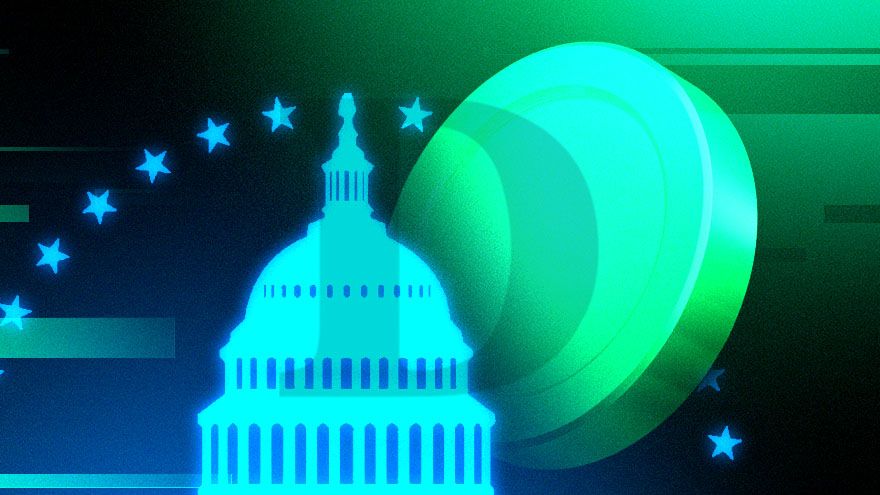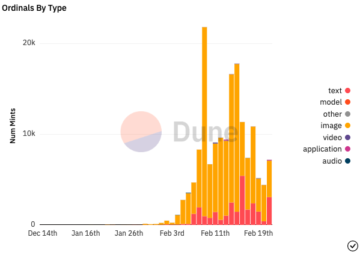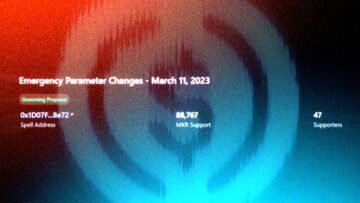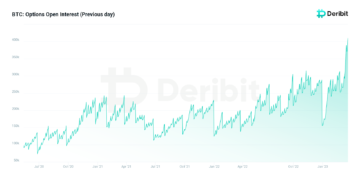
FIT for the 21st Century Act would introduce registration requirements for digital asset exchanges, brokers, and custodians, enhance disclosure requirements, and establish a CFTC-SEC joint committee on digital assets.
The House Financial Services Committee approved the Financial Innovation and Technology for the 21st Century Act, a bill proposing clear guidelines and consumer protections for the cryptocurrency industry on July 26.
The bill passed by a vote of 35 to 15, with six Democrats crossing the floor to join all Republicans in passing the act. Several senior Democrats expressed staunch opposition to the bill.
“In a historic first, the House Financial Services Committee just advanced the bipartisan FIT for the 21st Century Act to protect consumers and provide clear rules of the road for the digital asset ecosystem,” the committee said.
The House Committee on Agriculture will next review and potentially propose amendments to the bill on Thursday. If passed, the bill would move on to the Senate.
Many web3 advocates and industry representatives are hailing the vote as a milestone for crypto regulations in the United States. Cody Carbone, the vice president of policy at the Chamber of Digital Commerce, a blockchain trade association, said the vote marked “a massive day for digital asset regulation.”
“The digital asset space is muddled with regulatory uncertainty, lack of authority, and a lacking framework for core operating principles,” said Republic representative, Dusty Johnson. “ Our bill establishes clear principles to ensure financial security and certainty as digital asset developers continue to innovate.”
US Digital Asset Regulations
If enacted, the bill would introduce registration requirements for digital asset exchanges, brokers, and custodians, enhanced disclosure requirements, and establish a CFTC-SEC joint committee on digital assets.
The bill also designates jurisdiction over spot digital asset markets to the Commodity Futures Trading Commission (CFTC) and directs regulators to define clear thresholds for when a digital asset could become decentralized enough to become reclassified from a security to a commodity.
The act would also exempt digital asset issuers from securities laws if they do not own more than 10% of a token’s supply, sell less than $75M worth of assets in 12 months, and sales to non-accredited investors make up less than 10% of the issuer’s annual income or net worth. However, issuers must register with the SEC to qualify for the exemption.
SEC Offers Little Input
Democrats supporting the legislation passed small amendments to the bill, including $120M in additional funding to the CFTC to oversee spot markets for digital assets redirected from the SEC. “I am confident that this legislation, while not perfect, makes the status quo better, “ said Democratic representative, Jim Himes.
Maxine Waters, a committee member and high-ranking Democrat, expressed dissatisfaction with the bill, requesting that Gary Gensler, the chairman of the Securities and Exchange Commission and former Commodity Futures Trading Commission chairman, have more input regarding the bill.
However, Republican committee members said they unsuccessfully requested productive assistance from Gensler on multiple occasions, including requesting technical assistance on the bill in recent weeks.
The committee also advanced a bill exempting software developers and virtual asset services providers from being treated as digital asset brokers per the 2021 Infrastructure Investment and Jobs Act.
- SEO Powered Content & PR Distribution. Get Amplified Today.
- PlatoData.Network Vertical Generative Ai. Empower Yourself. Access Here.
- PlatoAiStream. Web3 Intelligence. Knowledge Amplified. Access Here.
- PlatoESG. Automotive / EVs, Carbon, CleanTech, Energy, Environment, Solar, Waste Management. Access Here.
- BlockOffsets. Modernizing Environmental Offset Ownership. Access Here.
- Source: https://thedefiant.io/u-s-house-financial-services-committee-advances-landmark-crypto-bill
- :is
- :not
- $UP
- 12
- 12 months
- 15%
- 2021
- 21st
- 26
- a
- Act
- Additional
- advanced
- advances
- advocates
- agriculture
- All
- also
- am
- amendments
- and
- annual
- approved
- ARE
- AS
- asset
- Assets
- Assistance
- Association
- At
- authority
- become
- being
- Better
- Bill
- bipartisan
- blockchain
- brokers
- by
- Century
- certainty
- CFTC
- chairman
- Chamber
- Chamber of Digital Commerce
- clear
- Commerce
- commission
- committee
- commodity
- confident
- consumer
- Consumers
- continue
- Core
- could
- crypto
- crypto bill
- Crypto regulations
- cryptocurrency
- Cryptocurrency Industry
- custodians
- day
- decentralized
- define
- Democrat
- democratic
- Democrats
- developers
- digital
- Digital Asset
- Digital Assets
- digital commerce
- disclosure
- do
- ecosystem
- enhance
- enhanced
- enough
- ensure
- establish
- establishes
- exchange
- Exchange Commission
- Exchanges
- exempt
- expressed
- financial
- financial innovation
- financial security
- financial services
- First
- fit
- Floor
- For
- Former
- Framework
- from
- funding
- Futures
- Futures Trading
- Gary
- Gary Gensler
- Gensler
- guidelines
- Have
- historic
- House
- House committee
- However
- HTTPS
- if
- in
- Including
- Income
- industry
- innovate
- Innovation
- input
- introduce
- investment
- Investors
- Issuer
- issuers
- Jim
- Jobs
- Johnson
- join
- joint
- jpg
- July
- jurisdiction
- just
- Lack
- landmark
- Laws
- Legislation
- less
- little
- make
- MAKES
- marked
- Markets
- massive
- member
- Members
- milestone
- months
- more
- move
- multiple
- must
- net
- next
- occasions
- of
- Offers
- on
- operating
- opposition
- or
- our
- over
- oversee
- own
- passed
- Passing
- per
- perfect
- plato
- Plato Data Intelligence
- PlatoData
- policy
- potentially
- president
- principles
- productive
- propose
- protect
- provide
- providers
- qualify
- recent
- regarding
- register
- Registration
- Regulation
- regulations
- Regulators
- regulatory
- representative
- Representatives
- Republic
- Republican
- Republicans
- requested
- Requirements
- review
- road
- rules
- s
- Said
- sales
- SEC
- Securities
- Securities and Exchange Commission
- Securities Laws
- security
- sell
- Senate
- senior
- Services
- several
- SIX
- small
- Software
- Software Developers
- Space
- Spot
- States
- Status
- supply
- Supporting
- Technical
- Technology
- than
- that
- The
- the Chamber of Digital Commerce
- they
- this
- thursday
- to
- trade
- Trading
- treated
- u.s.
- Uncertainty
- United
- United States
- vice
- Vice President
- Virtual
- virtual asset
- Vote
- Waters
- Web3
- Weeks
- when
- while
- will
- with
- worth
- would
- zephyrnet










